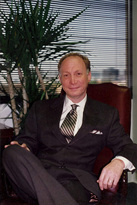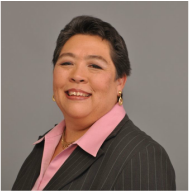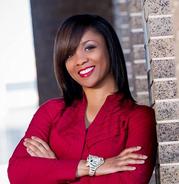Fishy Business: Beware of Sharks in Coaches' Clothing
|
By Nora Firestone
May 23, 2014 (A version of this article first appeared in “Inside Business” news journal March 14, 2014.) Parker Geiger hadn’t come dressed in a shark cage. But as he openly conversed at a casual event hosted by a friend, the need to protect himself from a natural predator emerged. A friend of the friend had begun studying Geiger, a well-established image- and brand-development coach and CEO of Atlanta-based Chuva Group. The man, also a business coach, circled the waters of Geiger’s intellectual prowess, plucking morsels from the original business models that pertained to what Geiger calls “personal branding disciplines.” Had he realized then how hungry the guy was, Geiger might have been less chummy. Geiger smartened up when he discovered that the man had “repackaged himself from all that I shared with him” at that event, he recalled. “Lesson learned? You bet,” he said. |
Although Geiger’s not threatened—he knows he possesses more credibility in the area, he said—it’s disheartening to see this happening in his beloved industry.
“You don’t want to live in a world where you don’t trust others,” Geiger proposed, but for this man “to now market himself as a bona fide personal branding coach to our mutual clients seems very deceptive to me.”
At the next party, the same man pressed Geiger about another program. “He was learning how I did it so he could just copy me,” Geiger said. “When I mentioned that our particular class is different than anyone else’s, he said, ‘Oh, how?’ I saw where he was going with that question, so I gave him a very vague answer and moved on.”
The man also moved on—toting the tactic to another unsuspecting guest.
“You don’t want to live in a world where you don’t trust others,” Geiger proposed, but for this man “to now market himself as a bona fide personal branding coach to our mutual clients seems very deceptive to me.”
At the next party, the same man pressed Geiger about another program. “He was learning how I did it so he could just copy me,” Geiger said. “When I mentioned that our particular class is different than anyone else’s, he said, ‘Oh, how?’ I saw where he was going with that question, so I gave him a very vague answer and moved on.”
The man also moved on—toting the tactic to another unsuspecting guest.
How dubious business coaches operate when they smell fresh blood
It can happen anywhere, from friendly get-togethers and casual business support groups to professional settings of various kinds. It doesn’t take much for hounds in any industry to recognize others’ brilliant ideas, mine for more information, and then repackage the insights as their own in order to coach, cultivate, empower or become the originators’ competition. (Anyone touting the notion that there’s no such thing as an original idea has perhaps simply never had one.)
And the tide of workforce displacement in recent years has given rise to two distinct groups: those who become entrepreneurs and first-time small-business owners, and those who desire to coach them through the process. Networking opportunities abound in support of them all, creating situations where enthusiastic entrepreneurs may naively share business models, solutions and original ideas. |
While traditionally a competitor would be easy to identify in a setting marked by formal introductions, it’s easy to overlook the fact that a coach or consultant may be present as much on behalf of numerous unnamed clients as for himself. |
|
While traditionally a competitor would be easy to identify in a setting marked by formal introductions, it’s easy to overlook the fact that a coach or consultant may be present as much on behalf of numerous unnamed clients as for himself. And as within all industries, some have more integrity than others.
“Desperate people do desperate things,” explained Lee Mednikow of South Carolina, retired business executive turned mentor. During his career in the publishing industry, he witnessed plenty of intelligence theft and always guarded his own ideas. It’s OK to share general information within the various networking settings, Mednikow said, “but if it reveals your ‘secret sauce,’ don’t talk about it. In these groups, be careful. They’re all there to figure out what to do.” |
Spotting the danger and protecting yourself
Mary Holt, a certified life and business coach and owner of Virginia Beach-based All Things Possible Life Coaching Services LLC, assures her clients of confidentiality and urges them to safeguard unique and proprietary aspects of their businesses in all non-confidential settings.
“Innovative products or services can easily be ‘appropriated’ without consent,” Holt warned. “All it takes is a little enthusiastic sharing, or even a moment of boasting, for listening ears to run with or ruin someone else’s creation.” Holt referenced Colonel Harland Sanders’ secret recipe of 11 herbs and spices for Kentucky Fried Chicken: “What if he had shared his secret while sipping brandy and smoking a cigar at a party?” she posed. If losing an idea would be detrimental, then it would be wise to share it only with a trusted team of associates and advisers in a secure environment, she advised. |
Holt clarified that her role as coach is not to pass ideas on to clients, but rather to help them identify their needs and goals and to guide them in formulating and discovering their own unique ideas and solutions and maximizing their own potential.
Shalita Heard, a women’s empowerment advocate and founder of the International Hair Extension Association, said she’s learned to distinguish between the good coaches and the questionable ones.
Shalita Heard, a women’s empowerment advocate and founder of the International Hair Extension Association, said she’s learned to distinguish between the good coaches and the questionable ones.
|
She once subscribed to a high-priced coaching program by a woman with a “believable” pitch. Heard soon realized that she wasn’t learning anything she didn’t already know, and that others in her group hadn’t progressed much in their own development in months.
“During quite a few of our calls (the coach) would pause when I told her different things I was doing in my business,” Heard recalled. “Then she would ask questions like, ‘Where did you have that done,’ ‘What was the name of that company again,’ and ‘How do you do that?’” Once when Heard asked the coach to be more specific about a recommendation, “she slapped a binder down in front of me from another well-known business coach and told me to get ideas from that content,” she recalled. “It was becoming obvious she was not actually a business coach, but a business coaching student who was sifting out information she’d bought from other people.” |
|
Amy Bonaccorso, founder of Washington D.C.-based New Mountain Coaching and award-winning author of “How to Get to ‘I Do’: A Dating Guide for Catholic Women,” discovered what she calls the “dark underbelly” of her industry when a fellow coach with a large following took one of her signature marketing insights away from an educational environment and ran with it as her own.
“She asked permission to borrow it but went beyond the scope of our agreement,” Bonaccorso recalled. What’s worse: Bonaccorso, already quite accomplished, got the clear impression that the woman had been “studying” her, “trying to see what made me successful, so she could take it for herself,” she said. Bonaccorso eventually drew a line in the sand, staking legal claim to her own ideas, she said, but to the tune of thousands of dollars and not without her confidence in others having been undermined. Overcoming the feelings of betrayal and resentment took time, she said. It’s disturbing that even in continuing-education settings, “the ‘gurus,’ the entrusted people, how oftentimes they will betray you.”
|
|
The International Coach Federation’s 2012 Global Coaching Study estimated that some 47,500 professional coaches worldwide fueled coaching revenues of nearly $2 billion in the 12 months prior to the study. More than 40 percent of survey respondents believed that the biggest challenge their industry would face in the future is the presence of “untrained individuals who call themselves coaches.”
While Iqbal Ashraf, CEO of Honolulu-based Mentors Guild, generally defends the work of authentic business coaches, “vetting of coaches is a key service we provide, so we know this is a problem area today,” he admits. Ashraf attributes the questionable behavior to such factors as unemployment, fly-by-night fast-track coach certification programs, substandard franchises and lack of industry regulation.
“I do think ethics is a key area where a coach with credentials from the ICF or Worldwide Association of Business Coaches is a safer bet” than one without, Ashraf said. Although Mentors Guild does not require that members be so credentialed, he noted that those who are, are trained to spot ethical issues, uphold a code of ethics and steer clear of grey areas, in both formal and informal settings.
Tom Kelly, an ICF-trained Master Certified Coach with Potential in Motion Inc., agrees.
“One of the things that sets apart a professional from others in the industry is trust,” Kelly noted. “Without trust between the coach and the client, you have nothing.” He recommends using confidentiality agreements when working with coaches and dealing only with those who uphold a reputable code of ethics such as the ICF’s.
Bonaccorso attributes the problem to greed, envy and lack of integrity, and she believes the field is becoming "an industry of overnight experts.” Some training programs emphasize a false sense of confidence and expertise, and new coaches are encouraged to charge inflated fees for services that they may not provide well, she explained. “That atmosphere means that you will encounter some thieves,” people who desperately want to be seen as “gurus” and are willing to build that image with the ideas of others.
While Iqbal Ashraf, CEO of Honolulu-based Mentors Guild, generally defends the work of authentic business coaches, “vetting of coaches is a key service we provide, so we know this is a problem area today,” he admits. Ashraf attributes the questionable behavior to such factors as unemployment, fly-by-night fast-track coach certification programs, substandard franchises and lack of industry regulation.
“I do think ethics is a key area where a coach with credentials from the ICF or Worldwide Association of Business Coaches is a safer bet” than one without, Ashraf said. Although Mentors Guild does not require that members be so credentialed, he noted that those who are, are trained to spot ethical issues, uphold a code of ethics and steer clear of grey areas, in both formal and informal settings.
Tom Kelly, an ICF-trained Master Certified Coach with Potential in Motion Inc., agrees.
“One of the things that sets apart a professional from others in the industry is trust,” Kelly noted. “Without trust between the coach and the client, you have nothing.” He recommends using confidentiality agreements when working with coaches and dealing only with those who uphold a reputable code of ethics such as the ICF’s.
Bonaccorso attributes the problem to greed, envy and lack of integrity, and she believes the field is becoming "an industry of overnight experts.” Some training programs emphasize a false sense of confidence and expertise, and new coaches are encouraged to charge inflated fees for services that they may not provide well, she explained. “That atmosphere means that you will encounter some thieves,” people who desperately want to be seen as “gurus” and are willing to build that image with the ideas of others.
Fielding the situation
Carol Sankar, a Charlotte, N.C.-based business coach, said she’s had content from programs, newsletters, Web pages and other original materials stolen by clients, colleagues and event attendees alike.
“This issue of copying has plagued my business, but I have come to realize there is not much that can be done,” she said. She trademarks some branding material but still finds it difficult to trace every source of infringement. To reduce website content breaches she creates trackable restricted-access pages.
Geiger sees those who are extroverted, social and generous as the most vulnerable. He advises that people keep their own council and carefully consider what information they’re willing to share in non-confidential settings.
“This issue of copying has plagued my business, but I have come to realize there is not much that can be done,” she said. She trademarks some branding material but still finds it difficult to trace every source of infringement. To reduce website content breaches she creates trackable restricted-access pages.
Geiger sees those who are extroverted, social and generous as the most vulnerable. He advises that people keep their own council and carefully consider what information they’re willing to share in non-confidential settings.
Karma: always hovering a notch above in the food chain
Sources agree that there are enough honest, reputable coaches and consultants to go around. If looking to hire one, be sure that your core values are in synch, Heard advises.
But Sankar cautions those who build their businesses by "stealing" the materials of others that “if you copy, you will attract copiers.” Her new philosophy: “Karma will deal with them as their businesses will not flourish from copying other people’s material,” she said.
Ashraf concurs. “Credentialed or not,” he said, “coaches with such dubious practices do not stay around for long in a reputation-based industry.”
But Sankar cautions those who build their businesses by "stealing" the materials of others that “if you copy, you will attract copiers.” Her new philosophy: “Karma will deal with them as their businesses will not flourish from copying other people’s material,” she said.
Ashraf concurs. “Credentialed or not,” he said, “coaches with such dubious practices do not stay around for long in a reputation-based industry.”
Copyright 2014, Nora Firestone
Marie Forleo, another business coach, addresses the "copycat" problem in business here. Click the link to check it out if you're a business person whose ideas are being copied. Definitely worth viewing!
*Author's note: It’s important to note that if a mentorship organization has introduced working professionals to what’s historically been known as a group of retired businesspeople as mentors, this may present new potential for a conflict of interests as those mentors still active in the workforce are also in regular competition in the non-volunteer part of their lives, yet can operate with a badge of perceived trust from and within an organization known for its no-longer-competitive mentors. In other words, even a mentor from any organization known for its confidentiality practices could be behaving outside of that organization's realm of ethical restrictions within other, non-confidential settings, mining ideas and unique insights from the originators within those settings, and then coaching organization mentees and personal clients with the ideas and insights mined from others. People who suspect someone of piercing the veil of ethical behavior in such a trust-based organization should consider reporting it.
Nora Firestone is a professional freelance reporter who lives with her family in the Coastal Virginia region. She also provides professional writing, media-relations and website-design services, as well as training and instructional presentations in writing for business, media relations/outreach and do-it-yourself website design, building and management.






